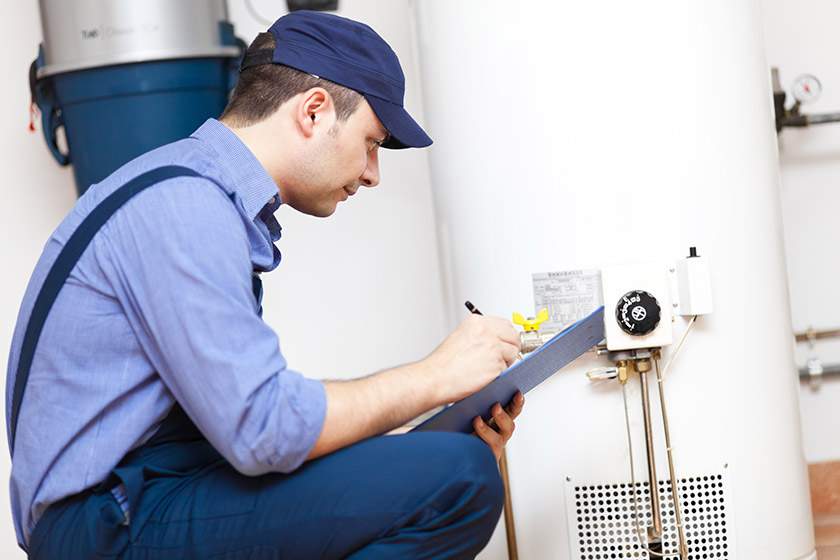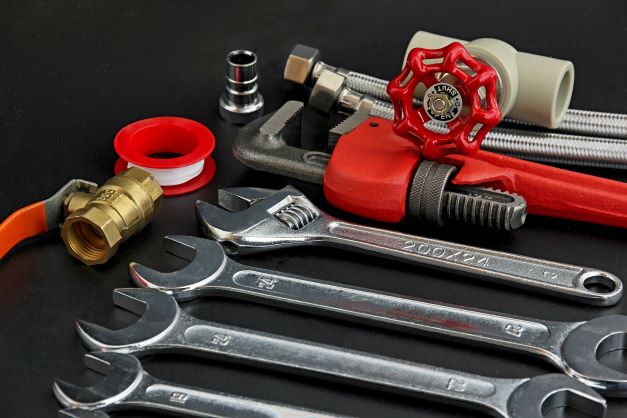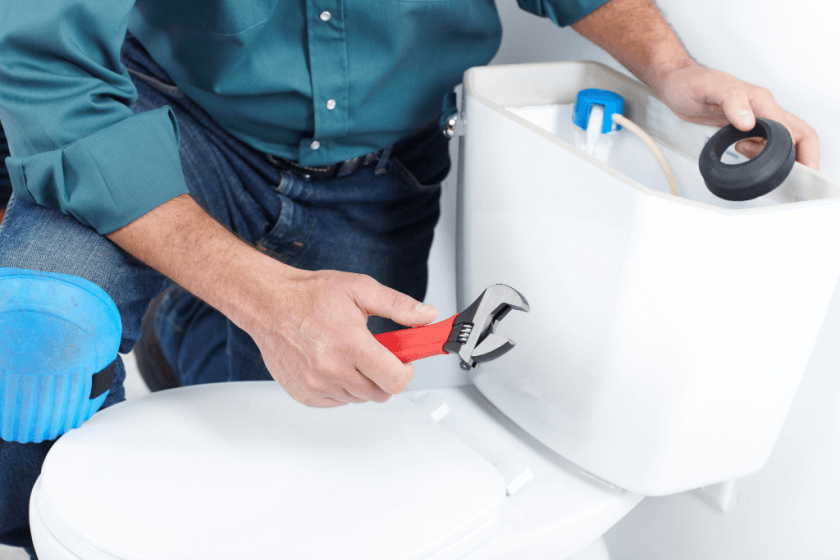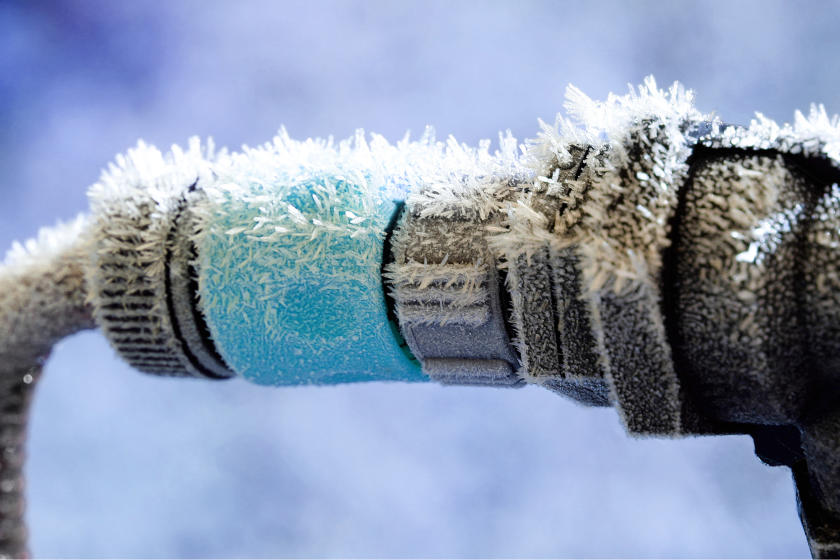
When you want to take a shower, you need hot water. That hot water is a key component of your home, and you need a water heater to avoid surprises in the shower or at the sink. Should you buy a tankless water heater or tank water heater? Here is everything you need to know to make a decision.
How Does a Tank Water Heater Work?
In many older homes, you will find tank water heaters. One of the biggest differences between a tank water heater and a tankless one is the presence of a large water tank. A tank water heater usually holds between 40 and 120 gallons of water.
Homeowners can set the tank’s temperature with the help of a thermostat. Gas or electric components will bring the temperature back to an optimal level when it drops below the presets. Once the water is heated, the water travels from a pipe at the top of the tank to the home’s faucets.
Tank water heaters have benefits and disadvantages. First, consider a few pros of tank water heaters. Tank water heaters are popular because they are an affordable option with a low installation cost. In most cases, a homeowner can install a new unit in a few hours. Since the systems are easy to operate, they have fewer repair and maintenance costs. For those with a large family, tank water heaters can heat more water than other options on the market.
There are a few drawbacks. Tank water heaters can take a long time to refill, meaning the hot water will run out after several consecutive uses. Most water heaters will only last for 10 to 15 years, less time than a tankless model. Since tank water heaters hold a large amount of water, they require more natural energy or electricity to warm up their systems.
What Is the Best Tank Water Heater?
The A.O. Smith Corporation makes some of the most popular models on the market. This company is the largest tank water heater manufacturer in the United States. These models meet or exceed all environmental standards and can be used for residential and commercial purposes. Rheem also manufactures high-quality tank water heaters. Many of their models use electricity and can heat up to over 450 gallons of water. Choosing a model with the Energy Star designation is crucial for those who want to save money on their energy bills.
How Does a Tankless Water Heater Work?
Tankless water heaters are also called on-demand water heaters. No matter your consumption needs, you can get consistent hot water delivered to your home. A tankless water heater will use high-powered burners to heat the water within minutes. All that hot water is transferred through a heat exchanger and then delivered to your faucet. The entire process is accomplished without the need for a tank.
There are two types of tankless water heaters: gas and electric. Gas tankless water heaters use propane or natural gas to heat the water. If the home is near a natural gas line, a homeowner can tap into those existing lines to install the unit. However, if there is no natural gas in the area, the tankless water heater will need propane to power it.
An electric tankless water heater is more expensive than a gas model. These models have lower installation costs and require less effort to place in your home. There are a few complaints about these heaters. They tend to use a lot of electricity and can be slow to heat the water.
When comparing tankless vs. tank water heaters, there are a few benefits. Tankless water heaters have a longer lifespan than tank models. Generally, you can expect them to last for about 20 years. The units also take up less space because they do not have to accommodate a large tank. These on-demand models will deliver hot water in an instant.
What Is the Downside of a Tankless Water Heater?
A tankless water heater could be an excellent option for smaller homes. While there are plenty of advantages, these units have a few cons. In most cases, you may pay about twice as much for a tankless unit over a tank one. Some installation costs are also high. Installing a tankless water heater requires routing gas lines, upping your home’s electricity needs, and installing exterior venting. Sometimes, you may need to install a water softener to prevent damage from hard water. Otherwise, minerals will build up and reduce the water heater’s life.
Tankless water heaters do require ongoing maintenance. You must flush out the lines to prevent the build-up of sediment and minerals. Tankless water heaters do have limited water capacity. If you plan to take a shower and wash dishes at the same time, you may run out of hot water. Tankless units can also deliver inconsistent temperatures to your home.
What Is the Best Tankless Water Heater?
If you want a gas-powered tankless system, Rinnai makes several models with various gallon sizes. EcoTouch’s units are great systems that will heat the water and not require a ton of maintenance from you. Stiebel Eltron is a good choice for those needing an electric tankless unit. For a trusted brand, Rheem produces a high-quality line of tankless water heaters.
On-Demand Water Heater vs. Tank Frequently Asked Questions (FAQs)orch
Are tankless water heaters better than tank water heaters? Here are answers to some common questions.
What Is the Average Cost of These Units?
The average water heater installation cost is between $825 and $1,800. Typically, you can spend about $1,500 for labor and parts. As you already know, tankless heaters are more expensive than the tank models. Most tank models will cost $300 to $2,000 for the tank, with the cost of a plumber running from $50 to $200 for installation. When it comes time to install a tankless model, you can expect to pay $300 to $2,500 or more for the unit and installation.
Are There Tax Breaks for Having a Tankless Water Heater?
In the past, qualifying tankless water heaters were eligible for tax credits of $300. However, these credits can change from year to year. Before purchasing a tankless water heater, it is important to do research, especially if you are counting on a tax credit to offset the higher price.
What Size Do I Need?
This answer will depend on your current water needs. If you use several appliances at once, you will need a large water heater for your home. Your faucets’ flow rates can help determine the right water heater size. Most modern faucets have lower flow rates than in the past. Take the flow rates of those water appliances and add them together. With that information, you can determine the size of your heater.
What Is the Better Option?
The newer tankless water heaters are better if you are looking for an energy-efficient model. These units will only heat the water you need, reducing water consumption. However, these water heaters can run out of water quickly. Tankless units may not be a great option for larger families or households.
Now that you know the difference between tank and tankless water heaters, you can choose the right one for the job. Find a store near you to see a variety of water heaters for your home.



